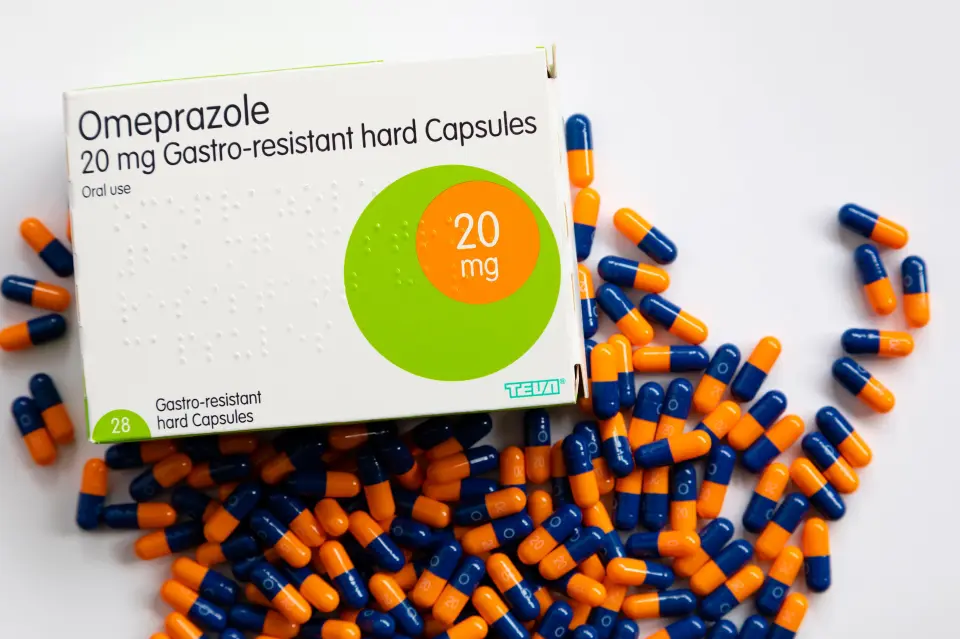MILLIONS of Brits who pop pills for heartburn could be at greater risk of a deadly tummy bug, experts warn.
The drugs, called proton pump inhibitors (PPIs) and handed out by GPs and bought over the counter to tackle heartburn and indigestion.
The latest NHS figures show more than 73 million prescriptions were dished out in England in 2022/23 alone, making them some of the most prescribed drugs in England.
The pills work by reducing the amount of acid in the stomach, easing the burning pain that comes with acid reflux.
And although generally considered safe PPIs, which include omeprazole, lansoprazole and pantoprazole, are not without risks.
Experts have long warned the drugs can increase the chances of Clostridioides difficile, otherwise known as C. diff, a nasty bug that causes severe diarrhoea and can sometimes be fatal.
Last year, the UK saw a spike in cases of the nasty bacteria.
From February 2024 to January 2025, the UK Health Security Agency (UKHSA) received 19,239 reports of C. diff sufferers. The higest number of cases since 2011/12.
A new study, published in The Journal of Infection in May of this year, checked for the first time if taking higher doses of the pills makes the risk even worse.
Pharmacist Deborah Grayson, dubbed the “godmother of pharmacology” on TikTok, also sounded the alarm in a viral video.
She said: “It can be helpful to have omeprazole if you’ve got gastritis or erosion in your oesophagus, but if you’ve only got simple heartburn-related problems, longer term it can have greater impacts on the body.”
While reflux is uncomfortable, stomach acid is essential for digestion.
It activates pepsin, an enzyme that breaks down proteins in the gut, and helps soften food.
It also protects against harmful microbes in food.
“Reduced stomach acid can also compromise the gut’s natural defense barrier, increased susceptibility to infections such as C. diff, campylobacter and small intestinal bacterial overgrowth (SIBO),” Deborah added.
“These can cause further gastrointestinal symptoms and, in some cases, serious complications.”
But researchers behind the new review said that while PPIs are linked to a higher risk of C. diff overall, there was no strong evidence that taking bigger doses raised the danger further.
The team from Karolinska Institutet in Stockholm, Sweden, carried out what’s called a “dose-response meta-analysis”, pooling results from previous trials and studies to see if higher amounts of the drug meant higher risk.
The study confirmed the pills are linked to a higher risk of C. diff, but found no clear proof that bigger doses make things worse.
The experts say it’s still a wake-up call to stop overprescribing and keep patients under review.
Patients should never suddenly stop taking PPIs without medical advice, as this can make acid reflux worse.
Anyone worried about their prescription should speak to their GP.
The 5 times your ‘normal’ heartburn could be serious
HEARTBURN is something that afflicts millions of Brits every day.
It happens when the muscle that allows food to flow from the oesophagus to the stomach doesn’t work as it should.
Stomach acid manages to seep through into the oesophagus, where it irritates.
Thankfully, heartburn is usually harmless and will disappear within a few hours – causing nothing more than a painful sensation.
It’s usually the result of eating certain foods or simply overeating.
But sometimes, it can indicate something more serious that needs to be investigated by a doctor.
What could severe heartburn mean?
1. Cancer
More specifically, cancer of the larynx and oesophagus.
When stomach acid flows back to the oesophagus, it can cause tissue damage that can lead to the development of oesophageal adenocarcinoma.
2. Heart attack
Heart attacks can easily be mistaken for heartburn.
According to Harvard Health, both conditions can cause chest pains.
The general rule is if you aren’t sure what you’re experiencing, it’s always worth seeking help, the NHS says.
3. Hiatus hernia
This is when part of the stomach squeezes up into the lower chest through an opening (hiatus) in the diaphragm.
The condition is usually found during a test to determine the cause of the heartburn or chest pain.
It is quite common in people over 50 and doesn’t normally need treatment if not too severe.
But if it is being accompanied by regular heartburn, then it might need to be dealt with through an operation or medication.
If it’s left untreated, persistent heartburn can cause long-term damage to the oesophagus, which can increase the risk of oesophageal cancer.
4. Lung cancer
This happens when acid in the digestive tract eats away at the inner surface of the stomach or small intestine.
The acid can create a painful open sore that may bleed.
People with this condition can often mistake it for heartburn.
The symptoms are similar, but a symptom of the disease is heartburn.
Other symptoms include nausea, vomiting, burning pain and discoloured stool due to bleeding.
While in most cases it won’t be too serious, with a doctor prescribing medications to relieve the symptoms and help the ulcer heal, in rare cases they can prove an emergency.
5. Lung problems
Stomach acid can get into your lungs, causing various potential respiratory issues, according to medical centre Gastroenterology Consultants of San Antonio.
The buildup of acid can cause irritation or inflammation of the vocal cords or a sore throat, which could trigger harmless things like coughing, congestion and hoarseness, it says on their website.
But if the acid is inhaled into the lungs, it can lead to more serious conditions like asthma, laryngitis, pneumonia or wheezing.

